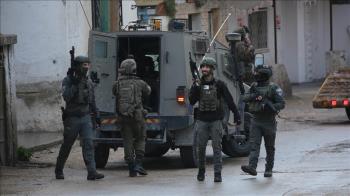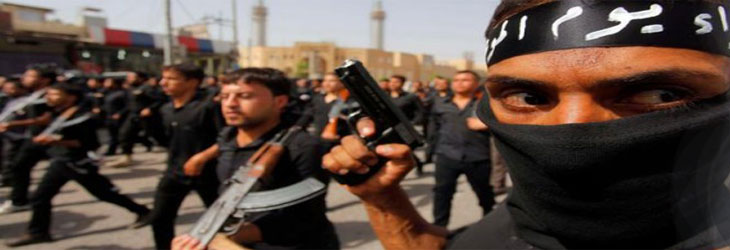Alwaght-America, reportedly, has made includes 60 states to join its so-called coalition against the ISIS terrorist group. All allies are not equal. Some states have only registered their name in American-led coalition as a sign of approving America's measure, and some of them play more active role. Among them, Jordan is perhaps the most important. From deploying fighter jets to providing logistical support to training Syrian terrorists, Jordan is proving an indispensable ally in the American-led campaign.
But not everyone in Jordan supports membership in the coalition. According to a poll published last month by the Center for Strategic Studies at University of Jordan, only 62 percent of Jordanians consider ISIS terrorist group—and a mere 31 percent the Syria-based Al Qaeda affiliate Jabhat Al Nusra—to be terrorist organizations. Even more stunning, just 44 percent of Jordanians surveyed say that Al Qaeda is a terrorist group.
Given these sentiments, Jordan has witnessed two pro-ISIS demonstrations, since ISIS terrorist group's offensive of Iraq. In fact, many Jordanians oppose their regime's military participation in the American-led campaign.
In fact, objections to a Jordanian role in the so-called anti-ISIS coalition emerged before the state signed up. In the beginning of September, twenty-one members of Jordan's parliament sent a memo to its speaker rejecting the regime's participation. "This war is not our war," the representatives wrote. "Our army is able to defend our borders and respond to any aggression".
Among the opponents of the Jordan regime's involvement, the Islamists have been especially vocal. The local Muslim Brotherhood chapter, for example, not only "rejects the use of Jordanian territory as a military base or launching pad" for coalition forces, it says deployment of troops abroad is a violation of article 127 of the constitution, which confines the role of the military to the 'defense' and 'safety' of the state.
Jordan’s growing population of Salafi, extremist Sunni sect, has also been critical. Abu Sayyaf, head of the local Salafi-Jihadi movement—which overtly supports Jabhat Al Nusra—described Jordan’s intervention in Syria against ISIS terrorist group as "the beginning of the end of King Abdullah’s regime". Yet another group of 25 Jordanian Islamic scholars published a statement earlier this month in the Jordanian Islamist daily As Sabeel, describing coalition operations as "a campaign against Islam".
Apart from Islamists, many Jordanian are against the regime's war, saying that America has created ISIS terrorist group and uses it as a tool to divide the countries of the region and open the field to its intervention in the internal affairs of the region's states.
Jordan borders Syria and Iraq and is home to more than 1 million Syrian refugees and 250,000 Iraqis. In addition, great public support for ISIS put Jordan at risk for this brutal terrorist group offensive. It is predictable that ISIS terrorist will continue their bloody way to Jordan as soon as they have stabilized their stronghold in Iraq, if they can. Terrorism is not faithful to anybody even its funders and supporters.


























